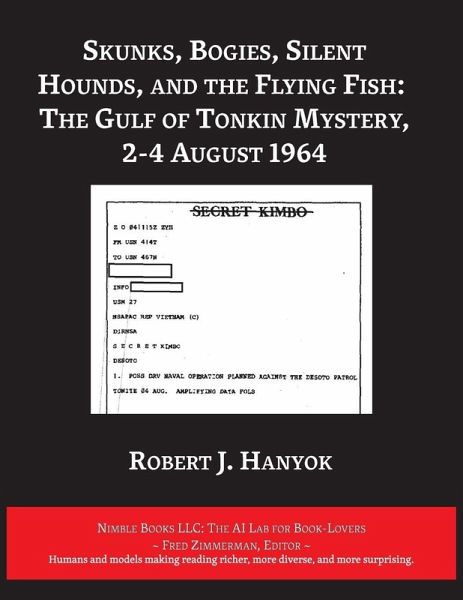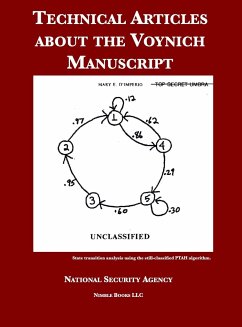
Skunks, Bogies, Silent Hounds, and the Flying Fish
The Gulf of Tonkin Mystery, 2-4 August 1964
Versandkostenfrei!
Versandfertig in 1-2 Wochen
20,99 €
inkl. MwSt.

PAYBACK Punkte
10 °P sammeln!
The Vietnam War continues to cast a long shadow over American history and the world's understanding of international relations. The debate about its origins and how it escalated has raged for decades, fueled by conflicting narratives and a lingering distrust of official accounts. This document, a declassified and previously un-published account of the Gulf of Tonkin Incident of 1964, goes deep inside the National Security Agency's (NSA) signals intelligence (SIGINT) operation during the crisis, revealing a shocking truth: the second attack, which was used to justify a congressional resolution ...
The Vietnam War continues to cast a long shadow over American history and the world's understanding of international relations. The debate about its origins and how it escalated has raged for decades, fueled by conflicting narratives and a lingering distrust of official accounts. This document, a declassified and previously un-published account of the Gulf of Tonkin Incident of 1964, goes deep inside the National Security Agency's (NSA) signals intelligence (SIGINT) operation during the crisis, revealing a shocking truth: the second attack, which was used to justify a congressional resolution granting President Johnson a blank check for military intervention in Vietnam, never happened. This report, drawing on an unprecedented amount of newly-released and previously unavailable SIGINT data, and originally published in the NSA's Cryptologic Quarterly, analyzes the events that transpired between August 2-4, 1964, revealing how analytic errors and deliberate misrepresentations of intercepted communications ultimately led to a tragic escalation of the conflict. Using detailed analysis of the raw SIGINT reports, this document exposes a previously hidden dimension of the Tonkin Gulf Incident, highlighting the complexities and potential pitfalls of signals intelligence analysis. It is a must-read for researchers, policymakers, practitioners, and anyone interested in understanding the origins and dynamics of the Vietnam War. This document offers a rare and compelling glimpse into the inner workings of the NSA, revealing the potential for human bias and error within even the most advanced intelligence agencies.














